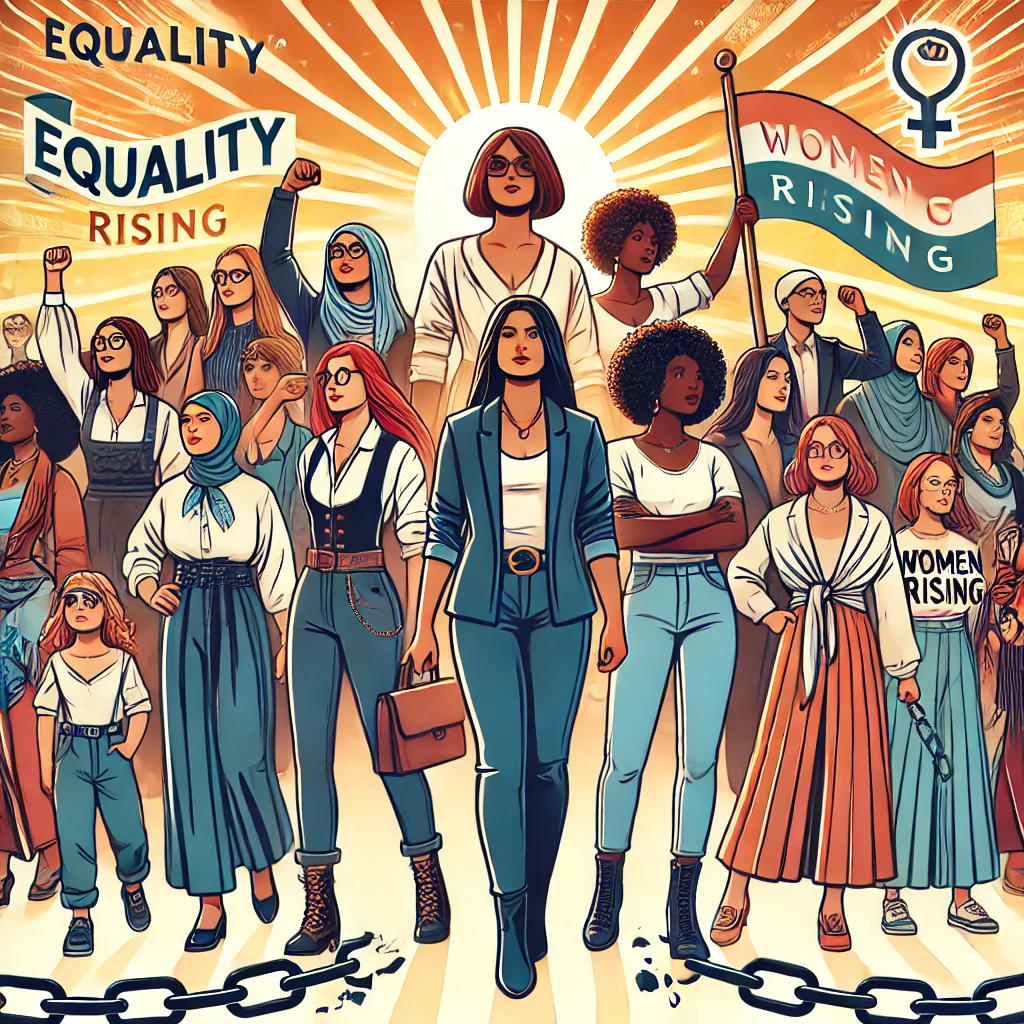Introduction
March is recognized worldwide as Women’s History Month, a time dedicated to honoring the countless contributions of women throughout history. It is a month of reflection, celebration, and advocacy, highlighting the achievements of women in various fields such as politics, science, literature, activism, and business. The journey toward gender equality has been long and challenging, and Women’s History Month serves as a reminder of the struggles women have faced and the progress they have made.
Thank you for reading this post, don't forget to subscribe!The Origins of Women’s History Month
Women’s History Month began as a week-long celebration in the United States in 1980, following efforts by activists to raise awareness about women’s contributions to society. In 1987, Congress officially extended the observance to the entire month of March. Other countries, including Canada, the UK, and Australia, also recognize Women’s History Month, though some celebrate it at different times of the year.
The idea of dedicating time to women’s history was born out of the need to challenge the traditional narratives that often overlooked women’s roles. Prior to this, historical accounts primarily focused on the achievements of men, leaving the impact of women in the shadows. Women’s History Month helps to correct this imbalance by educating people about the vital role women have played in shaping the world.
The Importance of Women’s History Month
Women’s History Month is crucial for several reasons:
- Recognizing Women’s Contributions: From ancient times to modern-day society, women have made remarkable contributions to science, medicine, politics, arts, and more.
- Educating Future Generations: By highlighting women’s history, we inspire young girls and boys to pursue their dreams and challenge stereotypes.
- Promoting Gender Equality: Despite progress, gender disparities persist. This month serves as a platform to discuss issues like equal pay, women’s rights, and representation.
- Honoring Unsung Heroes: Many women throughout history made significant impacts but were never recognized. This month brings their stories to light.
Influential Women in History
Throughout history, numerous women have paved the way for progress. Here are some of the most influential figures:
1. Marie Curie (1867-1934)
A pioneering physicist and chemist, Marie Curie was the first woman to win a Nobel Prize and remains the only person to win in two scientific fields. Her work on radioactivity revolutionized medicine and science.
2. Rosa Parks (1913-2005)
Known as the “Mother of the Civil Rights Movement,” Rosa Parks’ refusal to give up her seat on a segregated bus in Montgomery, Alabama, sparked a nationwide movement for racial equality.
3. Malala Yousafzai (Born 1997)
A symbol of resilience and education advocacy, Malala was shot by the Taliban for speaking up about girls’ right to education. She became the youngest-ever Nobel Prize laureate in 2014.
4. Ada Lovelace (1815-1852)
Often considered the world’s first computer programmer, Ada Lovelace foresaw the potential of computers long before they were invented.
5. Amelia Earhart (1897-1937)
A pioneer in aviation, Amelia Earhart was the first woman to fly solo across the Atlantic Ocean, breaking barriers for women in a male-dominated field.
Women’s Achievements Across Different Fields
Women have contributed immensely across all fields. Here are some key areas where women have left a lasting impact:
1. Science and Technology
- Katherine Johnson: A mathematician whose calculations were critical to NASA’s first space missions.
- Jane Goodall: A primatologist who transformed our understanding of chimpanzees and wildlife conservation.
2. Politics and Leadership
- Angela Merkel: The first female Chancellor of Germany, leading the country for 16 years.
- Kamala Harris: The first female Vice President of the United States.
3. Literature and Arts
- Maya Angelou: A poet and activist whose works on racism and identity inspired millions.
- Frida Kahlo: A renowned painter known for her self-portraits and exploration of identity, postcolonialism, and feminism.
Challenges Women Still Face Today
Despite remarkable progress, women continue to face challenges worldwide:
- Gender Pay Gap: Women, on average, still earn less than men for the same work.
- Underrepresentation: Women remain underrepresented in leadership roles across various industries.
- Violence Against Women: Issues like domestic violence, harassment, and human trafficking disproportionately affect women.
- Access to Education: Millions of girls worldwide still struggle to access quality education due to poverty, cultural norms, and conflict.
How to Celebrate Women’s History Month
There are several ways to honor and celebrate Women’s History Month:
- Educate Yourself and Others: Read books, watch documentaries, and learn about influential women.
- Support Women-Owned Businesses: Buy from female entrepreneurs and creators.
- Advocate for Women’s Rights: Get involved in organizations working toward gender equality.
- Recognize Women in Your Life: Celebrate the achievements of the women around you—mothers, sisters, teachers, and colleagues.
Conclusion
Women’s History Month is not just a celebration—it is a movement toward greater recognition, equality, and justice. By learning about the remarkable women who have shaped history and supporting the women of today, we take important steps toward a more inclusive and fair society. As we reflect on the past, we must also look forward, ensuring that the progress made continues for future generations.
Let us celebrate, empower, and uplift women—not just in March, but every day of the year.
